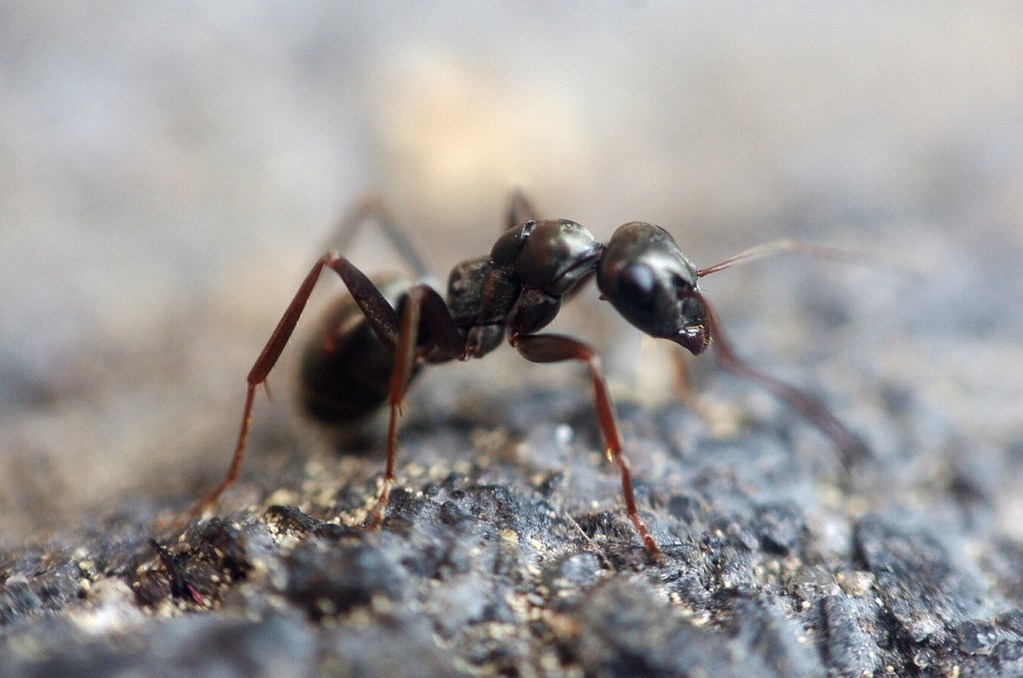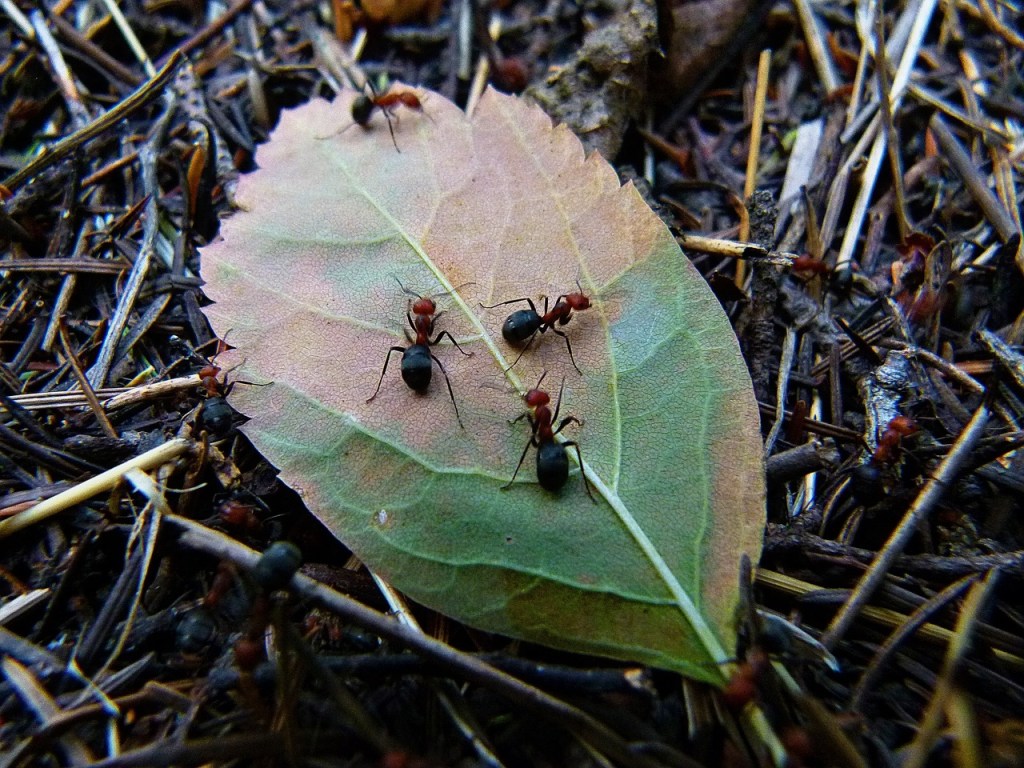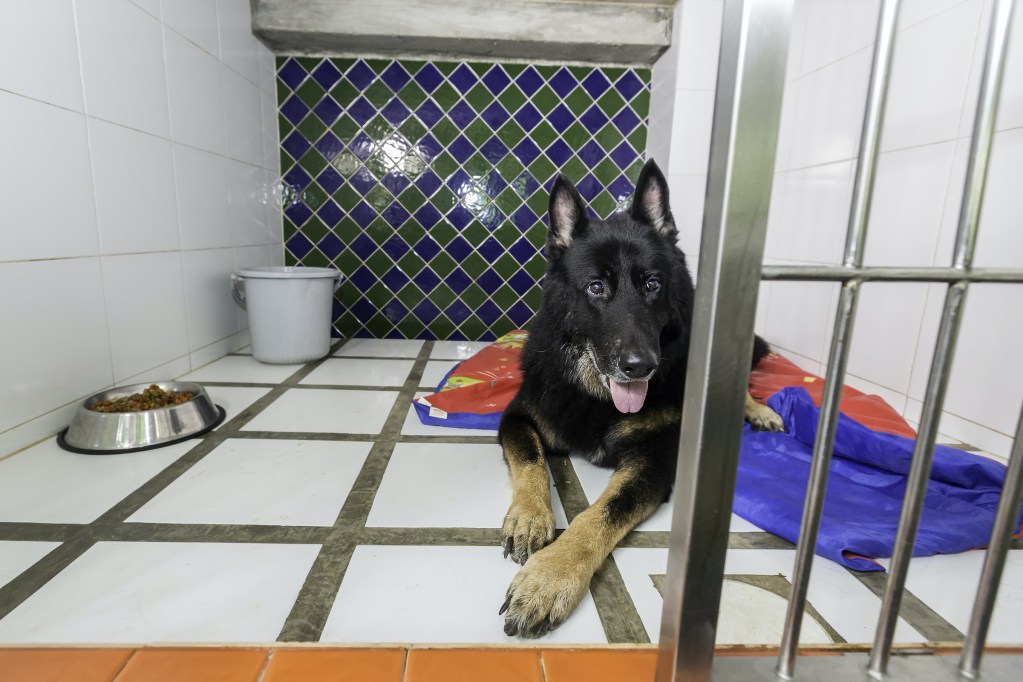
The warm weather, the long days, the fresh blooms decorating trees and bushes — all things that call to creepy crawlies…
Wait, what?
OK, so we don’t love everything about this time of year. Whether you have seasonal allergies or an ant infestation, the warmer weather and sweetly scented flowers can wreak havoc on your sinuses, not to mention your home. Fortunately, a thorough cleaning can help reduce allergens in your home, refresh your space, and get rid of the nasty pests invading your property. But if you’re a pet parent, you’ll want to use pet-safe pest control products to ensure that your efforts at eradicating unwelcome insect guests won’t make your fur baby seriously ill — or worse.
Here’s everything you need to know about getting rid of ants without harming your pets. Sorry, but we can’t help you with your seasonal allergies. Or can we? Both you and your pooch might try Benadryl, which is usually safe for most dogs. (You should speak to your vet first, though.)

What pest control products will hurt my pet?
Whether you prefer to use traps, bait, sprays, or pellets to battle the invading horde of insects, many pest control products contain harmful chemicals that can make your pet seriously ill. In some cases, ingestion of these ingredients might even turn out to be fatal to your fur baby. According to pest control experts, some of the worst offenders are:
- Acephate
- Amitraz
- Diazinon
- Fonofos
- Malathion
Instead, opt for pest control products that use chemicals, such as acetamiprid, imidacloprid, and lufenuron to treat infestations. We recommend contacting your veterinarian to discuss the best solution for your pet. If possible, try to board your pets while you treat your home and lawn. Although pesticides like imidacloprid are safer for those with pets to use than other chemicals, exposure can still be harmful to your beloved fur babies.

How do I get rid of ants safely?
According to Dr. Karen Louis of Metro-East Home Vet Care, ivermectin, a common heartworm preventative, often administered to millions of cats and dogs every month, doubles as an ant-killing agent. But is ivermectin safe to use around pets? Dr. Louis says she would be more concerned with the packaging causing an intestinal blockage than she would be worried about her dog ingesting the drug itself. Sounds good to us.

Home remedies proven to kill ants
While numerous pet-friendly products are sold in stores, they still contain chemicals that could make your pet sick. If you’re looking for an all-natural way to get rid of the creepy crawlies in your house, we have some good news. We’ve found oodles of pet-safe solutions you can use to get rid of the ant army without harming your furry family members. Let’s take a look at some of your options, so you can choose the best pest control solution for your home.
Cinnamon
This wonderfully fragranced spice smells amazing to us humans, but not to ants. In fact, inhaling cinnamon causes ants to suffocate, making it an inexpensive, effective way of getting rid of the ants in your home. Best of all, cinnamon — and cinnamon oil — are both relatively safe for use around cats and dogs. Just make sure your fur baby doesn’t eat too much, as it may cause irritation.
Diatomaceous earth
If you’ve ever used store-bought ant killer, you might have noticed one of the ingredients used is diatomaceous earth. Composed mainly of silica, alumina, and iron oxide, diatomaceous earth is also packed full of diatoms, which are fossilized aquatic organisms. Sprinkling the powder directly on top of visible ants dehydrates and kills them. You should also apply a line of diatomaceous earth in front of your doors and baseboards, preventing more ants from making their way inside. While diatomaceous earth is considered safe to use around pets, we recommend sticking with a brand that’s considered food grade, just to be extra cautious with your fur baby’s health.
Dish soap
What if we told you that you don’t need to spend a single penny to get rid of the ants invading your home? Although it probably sounds too good to be true, even pest control experts say this no-cost solution works every time. Combine six ounces of dish soap with three ounces of hot water in a spray bottle. Give the mixture a good shake and spray those pesky pests. This method works in two ways: The hot water burns the ants, while the dish soap forces water down their airways and suffocates them. Best of all, everyone has dish soap, a spray bottle, and hot water. As a bonus, dish soap is also an effective way of killing fleas and ticks.

Can my pets stay at home while I get rid of ants?
With many traditional pest control services, boarding your pets during treatment is strongly recommended, if not essential. Although some pest control companies use pet-safe ingredients and claim it’s safe for your pets to remain in the home, our at-home methods are perfectly safe for use around pets. However, if your fur babies are intensely curious, we recommend moving them to an area of the home where you aren’t treating for pests, if possible.
If the thought of using potentially dangerous pest control products around your pets makes you balk, never fear. Look for veterinarian-recommended ant killers (make sure to read the ingredients carefully), or opt for natural alternatives. While pet-friendly methods will kill the ants currently in your home and help repel them, keeping your home clean is the best way to prevent a future invasion.



